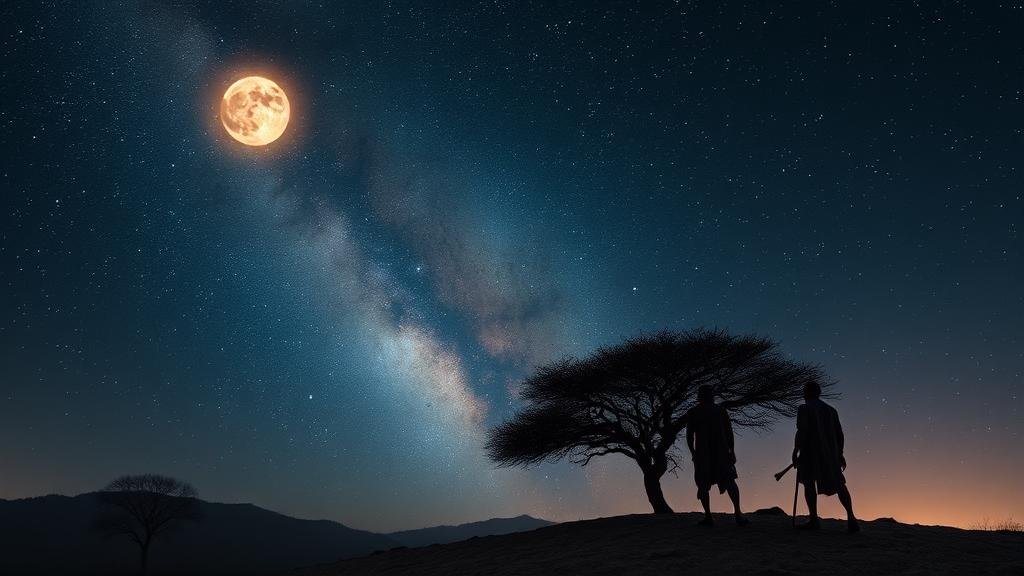Searching for the origins of the Dogon tribe’s knowledge of Sirius, a distant star.
The Mystique of the Dogon Tribe and Sirius
The Dogon tribe, residing in the rugged cliffs of the Bandiagara Escarpment in Mali, West Africa, has captivated researchers for decades with their sophisticated astronomical knowledge, particularly their understanding of Sirius, a binary star system. This knowledge raises intriguing questions about its origins, leading to various theories ranging from ancient astronomical observations to external extraterrestrial influences.
The Dogon’s Astronomical Insights
The Dogon people possess intricate knowledge about not only Sirius, but also its companion star, Sirius B, often referred to as the little star. They describe it as a small, dense, white star that is invisible to the naked eye and completes an orbit around Sirius A every 50 years. This understanding, astonishingly precise for a pre-industrial society, is perplexing to scholars and enthusiasts alike, especially considering that Sirius B was not discovered by Western astronomers until 1862.
Historical Context and Discovery
The Dogons knowledge seems to have been shared with French anthropologist Marcel Griaule during his extensive field studies in the 1930s. Griaule reported that the Dogon people had a rich cosmology that included detailed accounts of the Sirius star system. It is essential to note that these insights were documented long before improvements in telescopic technology made the stars true nature more apparent to modern astronomers. Indeed, Sirius B is a white dwarf star, which is a phase of stellar evolution that was not widely understood until the late 19th century, raising questions about how the Dogon had obtained such accurate information.
Potential Origins of Knowledge
There are several prevailing theories about how the Dogon could have acquired their advanced astronomical knowledge:
- Ancient Observations: One theory suggests that the Dogon people developed their knowledge through meticulous, long-term observations of the night sky. As traditional astronomers, they may have observed celestial patterns over generations and deduced information about Sirius through careful calculations.
- Cultural Exchange: Another possibility is that the Dogon encountered advanced Egyptian or West African civilizations that had early astronomical knowledge. Links have been suggested between the Dogon and the ancient Egyptians, particularly in how both cultures understand the cosmos.
- Extra-Terrestrial Hypothesis: More sensational theories propose that the Dogon received this knowledge from extraterrestrial beings, suggested to have connections with the Nommo, an amphibious creature revered in Dogon mythology.
Evidence and Criticism
While the Dogons claims have led to fascination, they are not without controversy. Critics question the reliability of Griaule’s translations and interpretations, suggesting they may not accurately represent Dogon beliefs. Also, cultural transmission could easily occur through storytelling and oral traditions that might have been influenced unknowingly by outside sources.
For example, some scholars argue that the descriptions of Sirius may have been influenced by European missionaries or traders who arrived in the region before Griaule. The importance of narrative in Dogon culture could mean that their accurate celestial knowledge is based more on a synthesis of external inputs rather than a unique, independent discovery.
The Impact on Modern Science and Culture
The Dogons understanding of Sirius has led to broader discussions about the intersections of culture, science, and spirituality. Their cosmology reflects a profound reverence for the universe, emphasizing that modern astronomical knowledge can coexist with traditional understandings. In many ways, this cultural tapestry challenges the dominance of Eurocentric perspectives in science, highlighting the value of indigenous knowledge systems.
Conclusion
Searching for the origins of the Dogon tribes knowledge of Sirius opens up a world of questions about human understanding of the cosmos. Whether this knowledge emerged from ancient observations, cultural exchanges, or other sources, it undeniably showcases the capacity of human societies to interpret celestial phenomena in meaningful ways. The Dogon, with their nuanced comprehension of the universe, encourage us to look beyond conventional narratives and recognize the richness of diverse knowledge traditions.
Moving forward, engaging with the Dogon’s astronomical legacy serves as a reminder to value both modern science and traditional knowledge, fostering a deeper understanding of the universe that we share.



